Money
Billionaire Late Bloomers, by Age of Their Breakthrough

Billionaire Late Bloomers, by Age of Breakthrough
More often than not, individuals and media alike focus on the success stories of early bloomers.
These early-age accomplishments of some of the richest people in the world are highlighted as marvels. The early achievements of hoodie-wearing CEOs like Mark Zuckerberg or Evan Spiegel—who became billionaires at ages 23 and 25, respectively—come to mind.
But there’s also the case to be made for the late bloomer. According to the Census Bureau, a 35-year-old is three times more likely to found a successful start-up than someone aged 22.
The infographic above, from Virtual College, highlights 45 billionaires who had their breakthrough later in life, by the age of their respective breakthrough.
Billionaires With Career Breakthroughs at or After Age 35
Though these late successes span many different industries and countries, there are many consistent through lines.
The 45 billionaires highlighted had an average age of 41 and an average net worth of $10 billion.
| Billionaire | Company | Age of Breakthrough | Net Worth ($B) | Nationality |
|---|---|---|---|---|
| Eduardo Eurnekian | Corporacion America | 56 | $1.3 | 🇦🇷 Argentina |
| Issad Rebrab | Cevital | 54 | $4.8 | 🇩🇿 Algeria |
| Torstein Hagen | Viking Cruises | 54 | $1.5 | 🇳🇴 Norway |
| Ion Tiriac | Banca Tiriac | 51 | $1.7 | 🇷🇴 Romania |
| Mike Adenuga | Globacom | 50 | $6.1 | 🇳🇬 Nigeria |
| Hussain Sajwani | Damac Properties | 49 | $2.4 | 🇦🇪 UAE |
| Radhakishan Damani | Dmart | 48 | $16.5 | 🇮🇳 India |
| Robert Kuok | Shangra-La Hotels and Resorts | 48 | $12.6 | 🇲🇾 Malaysia |
| Ricardo Po | Century Pacific | 47 | $1.1 | 🇵🇭 Philippines |
| Alain Tarvella | Altarea Cogedim Group | 46 | $2.0 | 🇫🇷 France |
| Seo Jung-Jin | Celltrion | 44 | $14.2 | 🇰🇷 South Korea |
| James Dyson | Dyson Ltd | 44 | $9.7 | 🇬🇧 UK |
| Walter Faria | Grupo Petropolis | 43 | $2.9 | 🇧🇷 Brazil |
| Horst Paulmann | Cencosud | 43 | $3.3 | 🇨🇱 Chile |
| Wolfgang Marguerre | Octapharma Group | 42 | $9.1 | 🇩🇪 Germany |
| Hansjorg Wyss | Synthes | 42 | $6.0 | 🇨🇭Switzerland |
| Giorgio Armani | Giorgio Armani S.p.A. | 41 | $7.7 | 🇮🇹 Italy |
| Dietrich Mateschitz | Red Bull | 40 | $29.6 | 🇦🇹 Austria |
| Sergei Katsiev | Megapolis | 40 | $1.7 | 🇷🇺 Russia |
| Li Xiting | Shenzhen Mindray Bio-Medical Electronics | 40 | $21.5 | 🇸🇬 Singapore |
| Jim Simmons | Renaissance Technologies | 40 | $24.6 | 🇺🇸 U.S. |
| Richard White | WiseTech Global | 39 | $3.5 | 🇦🇺 Australia |
| Amancio Ortega | Zara | 39 | $77 | 🇪🇸 Spain |
| Barry Lam | Quanta Computer | 39 | $5.3 | 🇹🇼 Taiwan |
| Arnon Milchan | New Regency Enterprises | 38 | $3.4 | 🇮🇱 Israel |
| Taha Mikati | Investcom | 38 | $2.5 | 🇱🇧 Lebanon |
| Arnout Schuijff | Adyen | 38 | $3.5 | 🇳🇱 Netherlands |
| Chuchat & Daonapa Petampai | Muangthai Capital | 38 | $3.5 | 🇹🇭 Thailand |
| Jaime Gilinski Bacal | Banco De Colombia | 37 | $3.8 | 🇨🇴 Colombia |
| Mohamed Al Fayed | Genevaco (Ritz Paris, Harrods) | 37 | $1.8 | 🇪🇬 Egypt |
| Vardis Vardinyannis | Motor Oil Hellas | 37 | $1.4 | 🇬🇷 Greece |
| German Larrea Mota-Velasco | Grupo Mexico | 37 | $25.9 | 🇲🇽 Mexico |
| Martin Lorentzon | Spotify | 37 | $6.0 | 🇸🇪 Sweden |
| Tran Ba Duong | Traco | 37 | $1.6 | 🇻🇳 Vietnam |
| Strive Masiyiwa | Econet Global | 37 | $1.5 | 🇿🇼 Zimbabwe |
| Zygmunt Solorz-Zak | Polsat | 36 | $3.2 | 🇵🇱 Poland |
| Mehmet Aydinlar | Acibadem Healthcare Group | 36 | $1.3 | 🇹🇷 Turkey |
| Joseph Tsai | Alibaba Group | 35 | $11.6 | 🇨🇦 Canada |
| Jack Ma | Alibaba Group | 35 | $48.4 | 🇨🇳 China |
| Eduard Kucera | Avast | 35 | $1.1 | 🇨🇿 Czech Republic |
| Bidzina Ivanishvili | Rossiysky Kredit | 35 | $4.8 | 🇬🇪 Georgia |
| Tahir | The Mayapada Group | 35 | $3.3 | 🇮🇩 Indonesia |
| John Armitage | Egerton Capital | 35 | $2.6 | 🇮🇪 Ireland |
| Tadashi Yanai | Uniqlo | 35 | $44.1 | 🇯🇵 Japan |
| Richard Hart | Raynolds Packaging Group | 35 | $8.7 | 🇳🇿 New Zealand |
Here are just a few highlights of late career breakthroughs:
Jack Ma
Ma is best known for co-founding Alibaba and becoming one of China’s wealthiest people, but his start came rather unexpectedly. After failing to secure jobs as a fresh graduate and starting his own translation company, Ma went on a business trip to the U.S. and discovered the internet (and a lack of Chinese websites). Over time, he connected Chinese companies with American coders to create websites, and soon saw room in the market for a business-to-business marketplace, which became Alibaba. The company secured millions in investment and would go on to become one of China’s leading forces in tech, all without Ma writing a single line of code.
Amancio Ortega
As the former CEO of fashion chain Zara and its parent company Inditex, Ortega is Europe’s third wealthiest person. That success came after opening the first Zara store in 1975 with his then-wife Rosalía Mera, with their store focusing on cheaper versions of high-end fashion. Ortega fine-tuned the design and manufacturing process to produce new trends more quickly, helping to pioneer the concept of “fast fashion,” and soon becoming a fashion powerhouse.
Jim Simons
Simons was once lauded as the world’s greatest investor, largely due to his outlandish returns of over 60% before fees. But he actually started in the academic field, acquiring a PhD in mathematics—he worked in many faculties, and even as a codebreaker for the NSA. Eventually, Simons utilized his mathematical knowledge on Wall Street, where he had his breakthrough in 1982 by starting his model-based hedge fund—Renaissance Technologies, and built a net worth of $24.6 billion.
Dietrich Mateschitz
One of the 60 richest people in the world, Austrian businessman Mateschitz got his start in marketing for Unilever and then cosmetics company Blendax. His breakthrough came on a business trip to Thailand, where the 40-year-old discovered that the local energy drink Krating Daeng helped his jet lag. Mateschitz and the drink’s creator, Chaleo Yoovidhya, each put up $500,000 to turn the drink into an exported energy brand, and Red Bull was born.
James Dyson
Before Dyson was a household name of vacuums, fans, and dryers, The UK’s James Dyson was an industrial engineer with many ideas for inventions. After getting frustrated with the bags of Hoover vacuum cleaners, Dyson had the idea for a bagless cyclone vacuum, and developed one after more than 5,000 prototypes over five years (and supported by his wife’s salary). At first he couldn’t find a manufacturer or success in the UK, so Dyson instead sold his vacuums in Japan and ended up winning the 1991 International Design Fair Prize there. Thirty years later, Dyson’s success led to a royal knighting and becoming the fourth richest person in the UK.
Late Bloomers: The Rule Not The Exception
It’s helpful to remember that these stories might be incredible and successful on a grand scale, but they are not entirely unique.
According to the U.S. Census Bureau, the majority of successful businesses have been founded by middle-aged people and the average age of a company’s founder at the time of founding is 41.9 years. Experience definitely pays dividends, and the saying that “life is a marathon, not a sprint” seems especially true for this list of late breakthrough billionaires.
War
Animated: Change in Russian Billionaires’ Wealth Since 2022
How have Russian billionaires fared since Russia’s invasion of Ukraine? This animation tracks the wealth of 22 Russian billionaires.
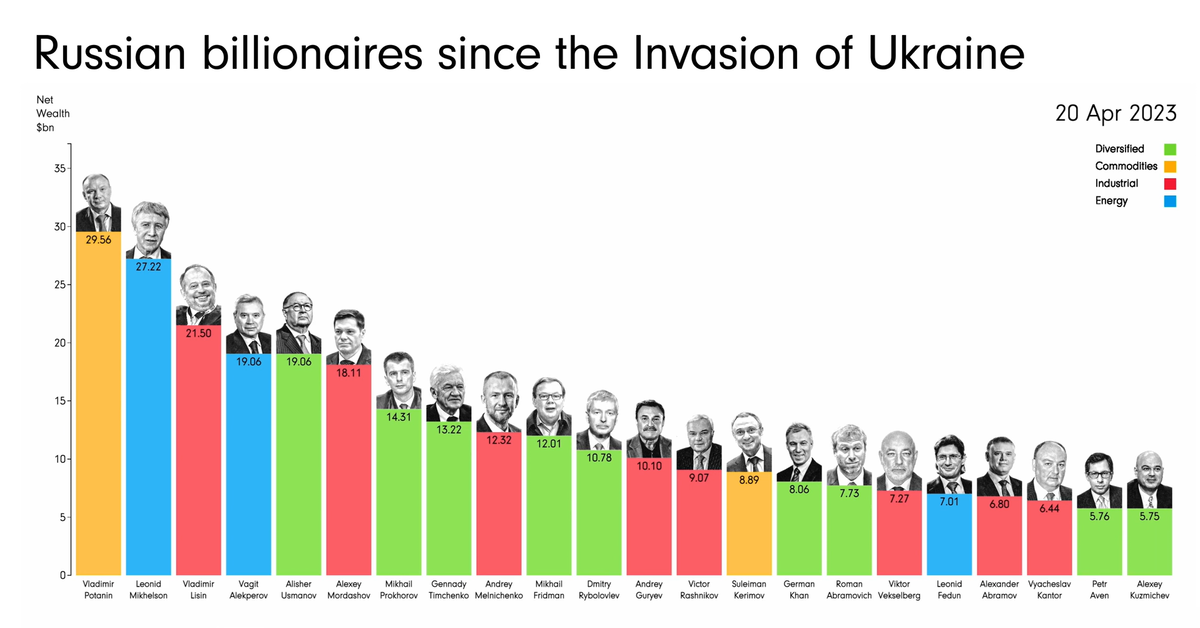
Animated: Change in Russian Billionaires’ Wealth Since 2022
When Russia invaded Ukraine in February 2022, many countries retaliated with sanctions targeting Russian billionaires—the oligarchs—and politicians directly.
And as the war has progressed, those sanctions have intensified, with even the relatives and shell companies of these billionaires being targeted over time. The reason? These oligarchs are interconnected to Russia’s government, lending vocal and fiscal support in exchange for sweetheart deals or beneficial government oversight.
This animation from James Eagle shows how the estimated net wealth of the 22 wealthiest Russian billionaires on the Bloomberg Billionaires Index in April 2023 has changed since January 2022, prior to the start of the conflict.
Net Wealth of Top Russian Billionaires
The 22 wealthiest Russian billionaires in April 20, 2023 lost a collective $90.4 billion in net worth since January 5, 2022.
| Rank | Name | Main Industry | Net Wealth (Apr 20, 2023) | Net Wealth (Jan 5, 2022) | % Change |
|---|---|---|---|---|---|
| 1 | Vladimir Potanin | Commodities | $29.6B | $31.1B | -4.8% |
| 2 | Leonid Mikhelson | Energy | $27.2B | $33.2B | -18.1% |
| 3 | Vladimir Lisin | Industrial | $21.5B | $28.0B | -23.2% |
| 4 | Vagit Alekperov | Energy | $19.1B | $22.8B | -16.2% |
| 5 | Alisher Usmanov | Diversified | $19.1B | $21.2B | -9.9% |
| 6 | Alexey Mordashov | Industrial | $18.1B | $29.1B | -37.8% |
| 7 | Mikhail Prokhorov | Diversified | $14.3B | $14.0B | 2.1% |
| 8 | Gennady Timchenko | Diversified | $13.2B | $23.1B | -42.9% |
| 9 | Andrey Melnichenko | Industrial | $12.3B | $17.8B | -30.9% |
| 10 | Mikhail Fridman | Diversified | $12.0B | $14.1B | -14.9% |
| 11 | Dmitry Rybolovlev | Diversified | $10.8B | $11.2B | -3.6% |
| 12 | Andrey Guryev | Industrial | $10.1B | $8.0B | 26.3% |
| 13 | Victor Rashnikov | Industrial | $9.1B | $14.4B | -36.8% |
| 14 | Suleiman Kerimov | Commodities | $8.9B | $15.2B | -41.4% |
| 15 | German Khan | Diversified | $8.1B | $9.6B | -15.6% |
| 16 | Roman Abramovich | Diversified | $7.7B | $18.2B | -57.7% |
| 17 | Viktor Vekselberg | Industrial | $7.3B | $18.6B | -60.8% |
| 18 | Leonid Fedun | Energy | $7.0B | $8.9B | -21.3% |
| 19 | Alexander Abramov | Industrial | $6.8B | $9.1B | -25.3% |
| 20 | Vyacheslav Kantor | Industrial | $6.4B | $9.1B | -29.7% |
| 21 | Petr Aven | Diversified | $5.8B | $6.6B | -12.1% |
| 22 | Alexey Kuzmichev | Diversified | $5.8B | $7.3B | -20.5% |
The heaviest hit include Viktor Vekselberg, who holds a stake in UC Rusal, the world’s third largest aluminum producer. Since the start of the war, he’s lost an estimated $11.3 billion or 61% of his net worth from January 2022.
Roman Abramovich, who got his start in the early oligarchy through oil conglomerates, was also hit hard by the sanctions. He lost $10.5 billion or 58% of his net worth from January 2022, and was forced to sell Chelsea Football Club in one of the biggest sports team sales in history.
Notably, the richest oligarchs haven’t lost as much. Mining giant Norilsk Nickel’s largest shareholder, Vladimir Potanin, saw his net worth only drop by 4.8%. After being hit hard at the onset of the war in Ukraine, he quickly rebounded and at many times had an even higher net worth, reaching $35.6 billion in June 2022.
And a few oligarchs, like former Norilsk Nickel CEO Mikhail Prokhorov and phosphate-based fertilizer baron Andrey Guryev, saw their wealth increase since January 2022. Guryev grew his net worth by $2 billion or 26%, while Prokhorov (who formerly owned the NBA’s Brooklyn Nets) saw his net worth even out at a gain of $0.3 billion or 2%.
Oligarch Support of Russia (or Lack Thereof)
As Russia’s war with Ukraine has dragged on, and sanctions have continued to weigh on Russian billionaires, politicians, and companies, their effects have been uncertain.
Oligarchs have lost net worth, relinquished foreign businesses, and even had prized possessions like mansions and yachts seized. At the same time, though Russia’s economy has weakened under sanctions, bolstered trade with countries like China, India, and Saudi Arabia have kept it stronger than expected.
And though some oligarchs have voiced various concerns over the ongoing war, the wealthiest have been careful to toe the line. Russian billionaires and politicians that did vocalize criticism, including Lukoil chairman Ravil Maganov, have been found dead in apparent suicides, heart attacks, and accidents.
The most serious oligarch rebellion wasn’t due to economic hardships, but military operations. Oligarch and mercenary leader Yevgeny Prigozhin launched an attempted coup in June 2023, reportedly retreating after support from within Russia’s military quickly fizzled.
-
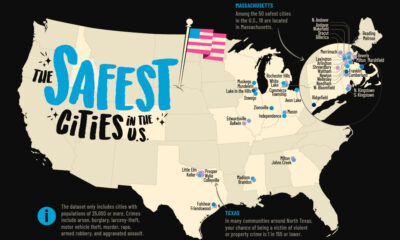
 Crime6 days ago
Crime6 days agoMapped: The Safest Cities in the U.S.
-
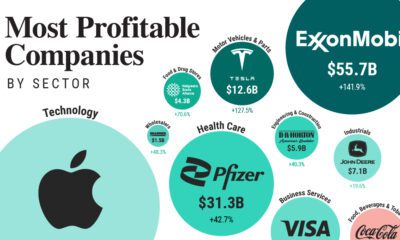
 Markets2 weeks ago
Markets2 weeks agoRanked: The Most Profitable U.S. Companies, by Sector
-
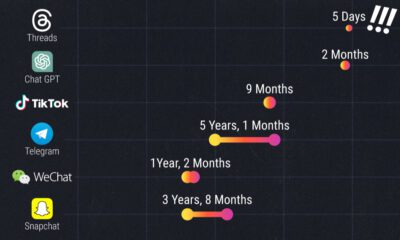
 Technology5 days ago
Technology5 days agoHow Long it Took for Popular Apps to Reach 100 Million Users
-
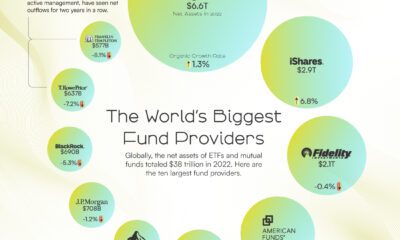
 Markets4 weeks ago
Markets4 weeks agoThe World’s Biggest Mutual Fund and ETF Providers
-
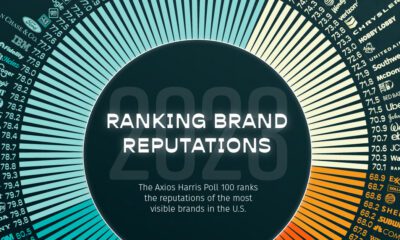
 Brands2 weeks ago
Brands2 weeks agoBrand Reputations: Ranking the Best and Worst in 2023
-
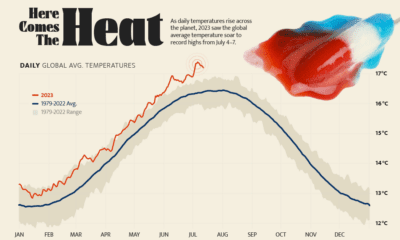
 Environment5 days ago
Environment5 days agoHotter Than Ever: 2023 Sets New Global Temperature Records
-
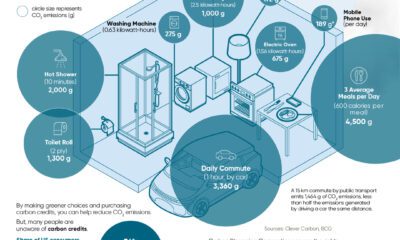
 Datastream4 weeks ago
Datastream4 weeks agoCan You Calculate Your Daily Carbon Footprint?
-
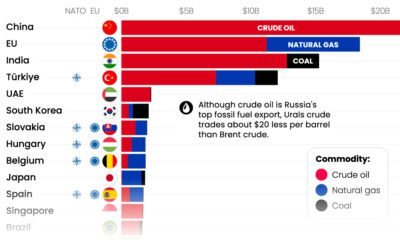
 Energy2 weeks ago
Energy2 weeks agoWho’s Still Buying Russian Fossil Fuels in 2023?



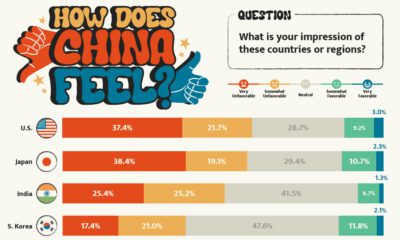

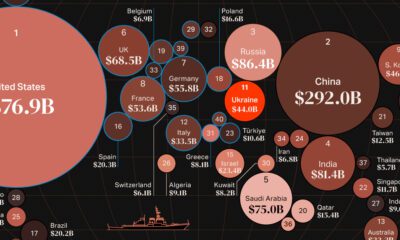

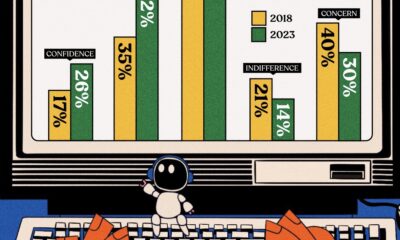

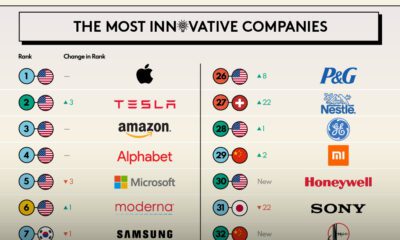

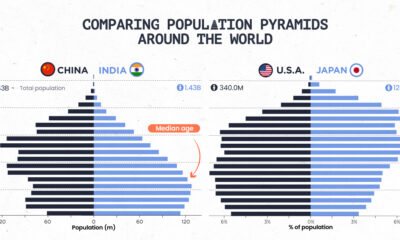

 Creator Program
Creator Program